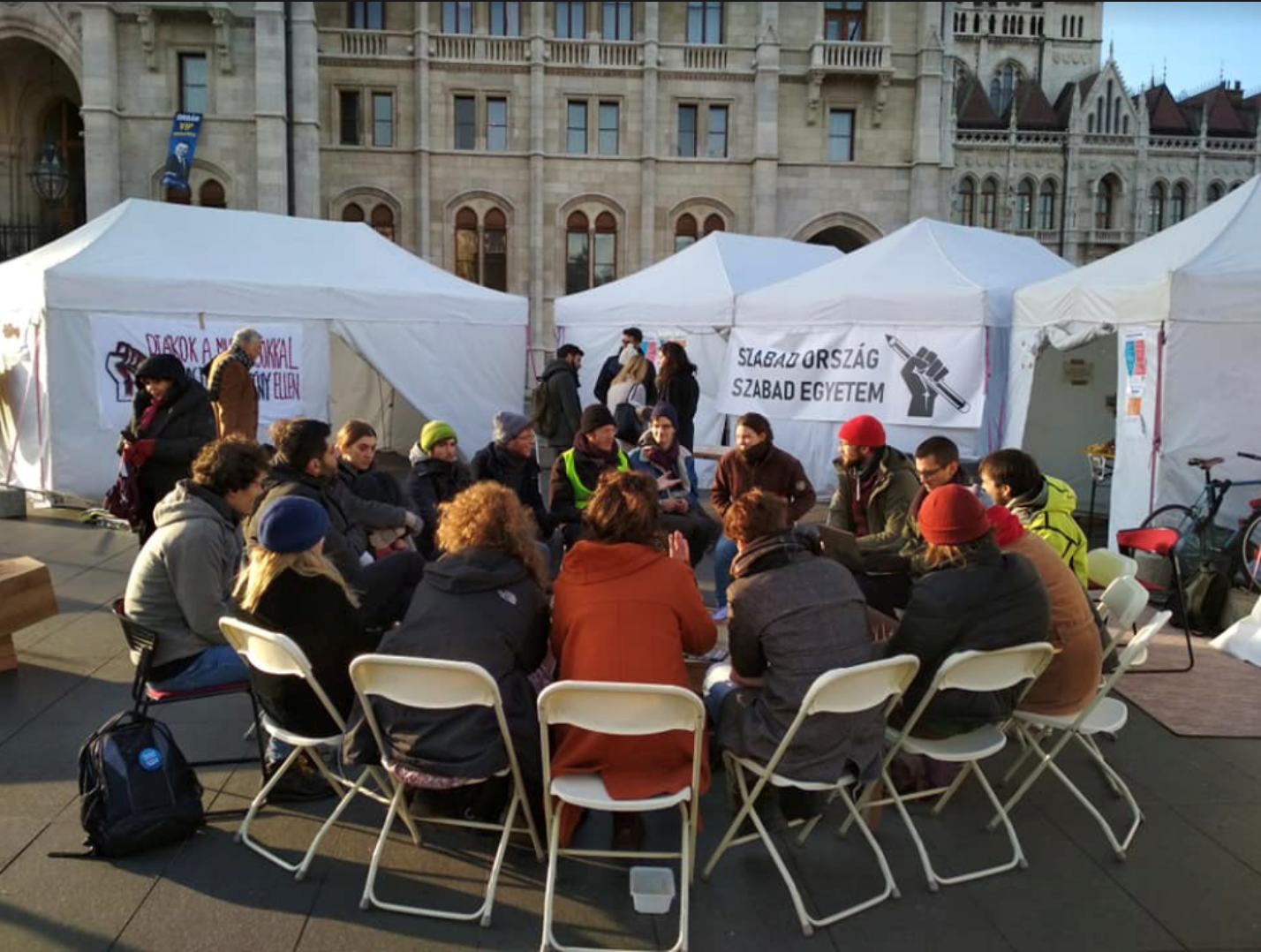Higher Education in Orbán's Hungary

by Georgina Davis
The Central European University has operated in Budapest for 27 years. Yet, on December 1st, the Hungarian government officially expelled the Central European University from Budapest, with incoming students moving to the new campus in Vienna for 2019/20.
This academic institution founded by American-Hungarian billionaire investor George Soros, which promotes liberal courses and broad perspectives, unnervingly no longer has a place in Orbán’s Hungary. In October, Orbán issued a decree to revoke accreditation and funding for gender studies programmes at the two universities which offer them, ELTE and CEU. Both the move of CEU and the government's censorship of the courses on offer at both CEU and ELTE are restrictions of academic freedom in institutions where it should be promoted and enjoyed the most.

In the past couple of weeks it has been amazing to see the many student-led protests, followed by a week-long occupation of Kossuth Tér (Parliament Square), that have taken place. This proves that there remains a possibility for challenges against the existing order, as manifested in a space transformed of its usual purposes, creating a symbolic reaction against the authority that normally determines and controls what goes on within.
The way the Hungarian government has undermined and violated academic freedom is an alarming move in light of the precedent it could set for interventions in the future. As professor of Gender Studies at CEU, Andrea Petö states: “this attack aims to create a new consensus of what should be seen as ‘normal, legitimate and scientific’ in the future...in this way, it is important not to normalize the way the government has blurred the lines between politics and education.”
What does this mean for the future? Does this mean all courses that have a critical view of society will be contested and tailored to what the government wants them to be, only allowing courses that fit into the Christian values of Hungary?
State intervention in higher education is unprecedented within European Union member countries. Yet, deputy Prime Minister Zsolt Semjen has said gender studies “has no business in universities” because it is “an ideology, not a science”. Semjen has also said that the market demand for the field was "close to zero" and that “no one wants to employ a gender-ologist”, instead articulating a desire for universities to offer more strategic study programmes and therefore promote the government’s main aim of demographic growth.

State intervention in higher education is not direct censorship but encourages self-censorship. Institutions can combat this, but in doing so they risk losing their funding and support from the government - which they need to survive. The alternative option is simply that, as Miles R Maftean (lecturer at ELTE) states, they can “concede to these illiberal changes”. This is the choice facing institutions like ELTE, which is reliant on public funding. ELTE, unlike CEU which is a private institution, cannot “secure its future by moving its campuses to Vienna”.
The support for and solidarity with institutions like ELTE should remain and should not be forgotten after the move of CEU. The use of the state’s legal framework to suppress knowledge that goes against the government’s illiberal expectations is corrupt; it is necessary that this continues to be challenged for the sake of higher education and academic freedom in Hungary.
